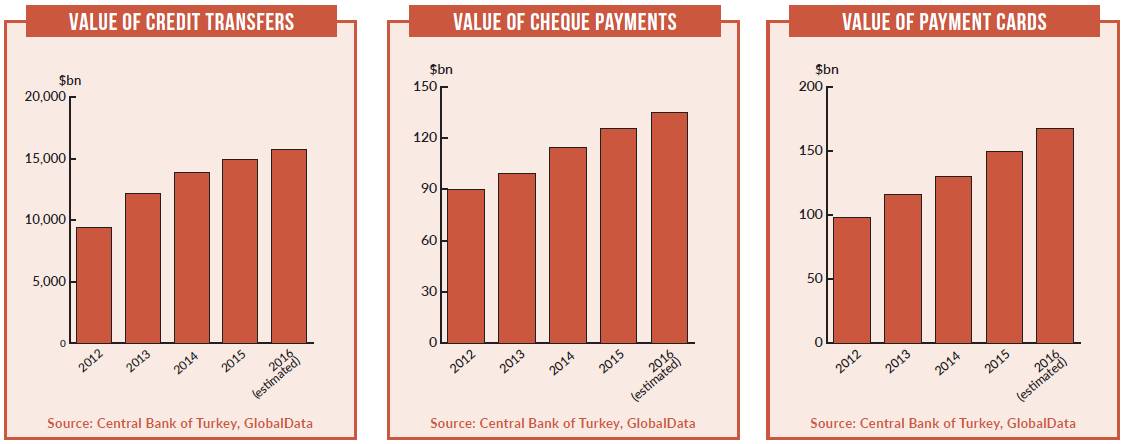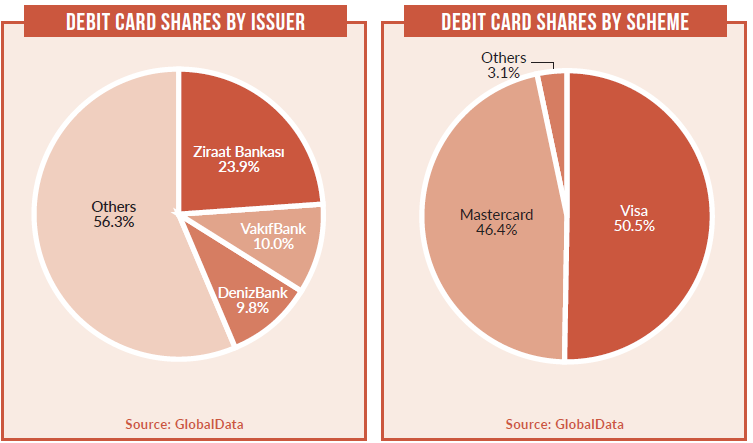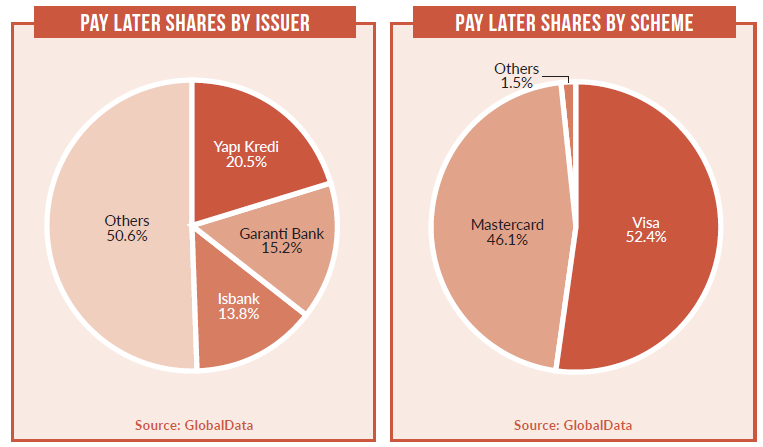The Turkish cards market remains highly competitive, with factors such as successful economic performance, a young population and a well-developed payment infrastructure making it appealing to banks and issuers
Turkey’s card penetration stands at 2.3 cards per inhabitant – the highest level among peers including Poland, Russia, Romania, Ukraine, Kazakhstan and Azerbaijan. The average annual spend per card in the country is higher than for most of its peers.
Cash remains a key part of the overall payment system in Turkey, although with time and increased financial literacy and awareness it is gradually being displaced by payment cards. With various marketing initiatives, such as the Bye Bye Cash campaign conducted by banks and the Interbank Card Centre of Turkey (BKM) to create consumer awareness of the benefits of electronic payments, the share of cash-based transactions is expected by fall further over the next five years.
In contrast to payments at retail outlets, most online payments are made with cards and, increasingly, alternative instruments. Contactless technology is gradually gaining popularity in Turkey, with the number of contactless payment cards rising from 10.3 million in 2012 to 29.1 million in 2016; it is anticipated to rise further to 55 million by 2020. The rising number of contactless cards and growing number of retailers accepting contactless payments will further drive payment card transaction values and volumes.
Credit Card Revival
Excessive use of credit cards and rising individual and corporate loans have led to increased consumer debt in Turkey in the past five years. In February 2014, the Banking Regulation and Supervision Agency (BRSA) placed limits on credit card use in relation to cardholder income, and restrictions on instalment facilities for certain products. Also, the minimum monthly repayment for outstanding credit card debt was raised to from 25% to 30% of the total amount, and banks increased interest rates on credit card borrowings. 
These measures led to a slowdown in credit card market growth. However, in a move to spur consumer spending, the BRSA relaxed regulations on credit card and consumer loans in 2016. According to the new guidelines, consumer loan maturity limits rose from 36 to 48 months, and credit card purchases can be made in 12-month instalments, up from nine months. This measure is expected to provide a push to the country’s credit cards market.

US Tariffs are shifting - will you react or anticipate?
Don’t let policy changes catch you off guard. Stay proactive with real-time data and expert analysis.
By GlobalData

Alternatives Gain
The fast-growing e-commerce market is acting as a driver of payment cards market in Turkey. E-commerce registered a CAGR of 32.88% in the space of five years, rising from $7.8bn (TRY27.9bn) in 2012 to $24.3bn in 2016. Conventional instruments, including payment cards, remain the preferred mode of payment for e-commerce, accounting for 85.0% of the total e-commerce transaction value in 2016.
However, alternative payment instruments are gaining prominence, with banks, mobile network operators and payment solution providers launching new products. A number of alternative payment solutions, such as BKM Express, Masterpass, PayMobile and PayU are present in the country. Mobile wallets, digital wallets and carrier billing collectively accounted for 7.3% of the total e-commerce transaction value in 2016 – up from 1.2% in 2012.
Preference for Prepaid
The Turkish prepaid cards market recorded a significant CAGR of 16.96% between
2012 and 2016. A large unbanked population drove demand for prepaid cards in the country, as the unbanked population accounted for 42.9% of the total population in 2016.
Gift cards are slowly gaining popularity among Turkish consumers, as many individuals prefer gift cards for occasions such as birthdays and holidays. The cards can be loaded with the desired amount and then given as a gift. For instance, Yapı Kredi offers Visa Electron World Gift card. Funds can be loaded at all World Member Business Locations. Similarly, Edenred Company provides the Mastercard Ticket Compliments gift card that can be used at over 1 million terminals.
In addition to retail customers, a number of prepaid cards are offered to corporate customers in the form of travel, payroll and business cards. For example, Garanti Bank offers the Corporate Travel card, which helps employees to effectively manage travel and other expenditure. Similarly, Best Western Turkey, a leading hotel chain, offers prepaid corporate travel cards, which are available in multiple currencies.








